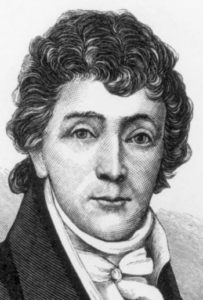
Francis Scott Key
*Francis Scott Key was born on this date in 1779. He was a white-American slave owner, lawyer, author, and poet.
Key was born to Ann Phoebe Penn Dagworthy (Charlton) and Captain John Ross Key at the family plantation Terra Rubra in what is now Carroll County, Maryland. His father was a slave owner, lawyer, judge, and officer in the Continental Army. His great-grandparents on his father's side, Philip Key and Susanna Barton Gardiner, were both born in London and then immigrated to Maryland in 1726. Key graduated from St. John's College, Annapolis, Maryland, in 1796. Key purchased his first slave in 1800 and married Mary Tayloe Lloyd in 1802. In 1806, his sister, Anne Phoebe Charlton Key, married Roger B. Taney, who would later become Chief Justice of the United States.
In the 1830s, he set free seven slaves, one of whom (Clem Johnson) continued to work for him for wages as his farm's foreman, supervising several slaves. During the War of 1812, Key, accompanied by the British Prisoner Exchange Agent Colonel John Stuart Skinner, dined aboard the British ship HMS Tonnant as the British guests. They were not allowed to return to leave because they had become familiar with the strength and position of the British units, and the British intended to attack Baltimore. Key could only watch the Battle of Baltimore on September 13–14, 1814. At dawn, Key could see an American flag still waving.
Back in Baltimore and inspired, Key wrote a poem about his experience, "Defence of Fort M'Henry", published on September 21, 1814, in William Pechin's American and Commercial Daily Advertiser. He took it to Thomas Carr, a music publisher, who adapted it to the rhythms of composer John Stafford Smith's "To Anacreon in Heaven." It became known as "The Star-Spangled Banner" and the de facto national anthem during the Mexican-American War and American Civil War. The song was adopted as the American national anthem, first by an Executive Order from President Woodrow Wilson in 1916 (which had little effect beyond requiring military bands to play what became known as the "Service Version") and then by a Congressional resolution in 1931, signed by President Herbert Hoover.
Key had a contradictory (perhaps white-privileged) interpretation of Black people. Though a slave owner, throughout his career, he represented several slaves seeking their freedom in court (for free) and several masters seeking the return of their runaway slaves. Key and others were administrators of the will of their friend John Randolph of Roanoke, who died without children and left a will directing his executors to free his more than four hundred slaves. Over the next decade, the administrators fought to enforce the will and provide the freed slaves with land to support themselves. Key criticized some of slavery's cruelties and was a founding member and active leader of the American Colonization Society and its predecessor, the influential Maryland branch; the primary goal was to send free Blacks back to Africa.
Conversely, he strongly supported the pro-slavery Democratic Party and its candidate in the 1828 U.S. presidential election, Andrew Jackson. After serving as a trusted adviser to Jackson for his first years as president, in 1833, Key was appointed U.S. attorney for Washington. Key used his position as Attorney to suppress abolitionists. In 1833, he secured a grand jury indictment against Benjamin Lundy, editor of the anti-slavery publication The Genius of Universal Emancipation, and his printer, William Greer, for libel after Lundy published a pro-abolitionist article. In August 1836, Key prosecuted botanist and doctor Reuben Crandall, brother of Connecticut schoolteacher Prudence Crandall, who had recently moved to the national capital.
Key secured an indictment for "seditious libel" after two marshals (who operated as slave catchers in their off hours) found Crandall had a trunk full of anti-slavery publications in his Georgetown residence, five days after the Snow Riot, caused by rumors that a mentally ill slave had attempted to kill an elderly white woman. In an April 1837 trial that attracted nationwide attention, Key charged that Crandall's actions instigated slaves to rebel. Crandall's attorneys acknowledged he opposed slavery but denied any intent or actions to encourage rebellion. Key served as U.S. attorney for Washington until 1841. On January 11, 1843, Key, most noted for writing the lyrics for a poem that eventually became the United States national anthem, "The Star-Spangled Banner," died at the home of his daughter, Elizabeth Howard, in Baltimore at age 63.